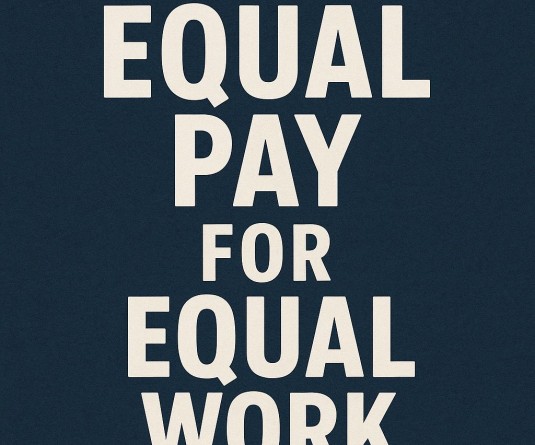
Menkato V Awomi
Dimapur
There is a widespread misconception within many religious circles that wealth and sincere devotion to Jesus are mutually exclusive. Some have been taught, either directly or subtly, that having riches mean you are worldly, compromised, or less spiritual. But this idea is not only unbiblical, it is harmful and rooted in human tradition, not divine truth.
The truth is this: You can have Jesus in your life and still have wealth. You can be rich and still walk closely with God. In fact, the Bible shows us that God is not against your wealth, He is the One who gives it! Scripture declares that it is God who gives you the power to get wealth (Deuteronomy 8:18). He delights in blessing His children with good things, including financial prosperity. As a loving Father, He takes joy in seeing His children provided for, secure, and even thriving.
Misunderstanding Wealth as Sin
Unfortunately, for far too long, religious leaders and zealous believers have often ridiculed or criticized wealthy men and women of God or of the world. They sneer at their success and accuse them of being materialistic or sinful simply because they prosper financially. But wealth itself is not a sin. Nowhere in the Bible does God condemn riches. What He does warn against is the love of money.
The apostle Paul, writing under divine inspiration, said clearly in 1 Timothy 6:10, For the love of money is a root of all kinds of evil. Notice, it doesn’t say money itself is evil but the love of it. This distinction is vital. It is not wealth, but idolatry of wealth, that God opposes.
God desires that we be content with what we have (Hebrews 13:5) and faithful stewards of all that He entrusts to us including finances. We are not owners, but stewards Everything we possess ultimately belongs to Him, and we are responsible to use it for His glory.
Wealth in the Bible: A Spiritual Reality
When we look at Scripture honestly, we see that wealth is not only accepted, it is often portrayed as spiritual and even as a sign of God's covenantal blessing. Abraham, David, Solomon, Job, all were men of great substance, and their riches came directly from the hand of God. These were not carnal men; they were men after God's own heart, living in obedience and faith. They were blessed not just spiritually, but materially, as a result of their walk with the Lord.
Even in the New Testament, we find examples of wealthy believers like Joseph of Arimathea, Lydia the seller of purple, and others who used their resources to serve Christ and advance the Kingdom. Wealth in itself is not carnal, it’s the heart behind it that matters.
God’s will For us to Prosper
3 John 1:2 says, “Beloved, I pray that you may prosper in all things and be in health, just as your soul prospers.” This verse reveals clearly that it is God’s will for His children to prosper. John ties prosperity in “all things” to the prosperity of the soul, meaning that as our spiritual life flourishes, God also desires us to experience prosperity in every other area including our finances and physical health.
God’s will is not limited to our spiritual well-being alone but encompasses our spirit, soul, and body. Financial abundance, when obtained in alignment with God’s principles, is part of that prosperity. It is never about dishonest gain or worldly shortcuts but about walking in the blessings that come from Him. As Proverbs 10:22 declares, “The blessing of the LORD makes one rich, and He adds no sorrow with it.” True prosperity comes from the Lord’s hand, bringing abundance without regret, compromise, or destruction.
The Test of the Heart: Who Comes First?
One of the most powerful biblical examples on this topic is the story of the rich young ruler (Matthew 19:16–22). When Jesus asked him to sell all his possessions and follow Him, the young man walked away sorrowful not because he was rich, but because he loved his wealth more than he loved God. He was unwilling to lay it down when called upon. This story isn’t about God being against money, it’s about priorities
God must always be first in our lives above wealth, success, influence, or comfort. That is the core of discipleship: Seek first the Kingdom of God and His righteousness, and all these things will be added unto you." (Matthew 6:33)
So when God speaks of instructions, He doesn’t limit Himself to moral or spiritual principles alone. He also gives us practical guidance about money, relationships, work, and everyday life. These instructions help us navigate the choices we face, and chief among them is the question of priority, who or what comes first?
Stewardship over Possession
When we understand that everything we have comes from God, our attitude toward money changes. We no longer see it as something we earned or deserve, but as a resource entrusted to us to manage for His glory. We become stewards of His provision channels through which His blessings can flow to others.
We must resist the temptation to create doctrines based on our own preferences, envy, or experiences. Instead, we must be careful students of the Word, rightly dividing truth by comparing Scripture with Scripture (1 Corinthians 2:13). Isolated verses can be misused to build false doctrines, but when we read the Bible as a whole, the truth becomes clear: God is not against wealth, He is against idolatry.
A Call to Balance and Biblical Perspective
The Church today must return to a balanced and biblical understanding of prosperity. We must neither idolize wealth nor demonize it. We must teach contentment, generosity, and stewardship without condemning those whom God has chosen to bless financially. And for those who are wealthy, the call is clear: Use your resources for eternal purposes. Honor God with your wealth, and do not trust in uncertain riches, but in the living God, who gives us richly all things to enjoy. (1 Timothy 6:17).
In conclusion, wealth is not inherently sinful, nor is poverty inherently spiritual. What matters to God is the heart and whether we are willing to put Him first, obey His instructions, and steward whatever He gives us in a way that brings Him glory. When Jesus is Lord over our finances, our possessions, and our priorities, then our wealth however great or small becomes a powerful tool in the hands of a faithful steward.





